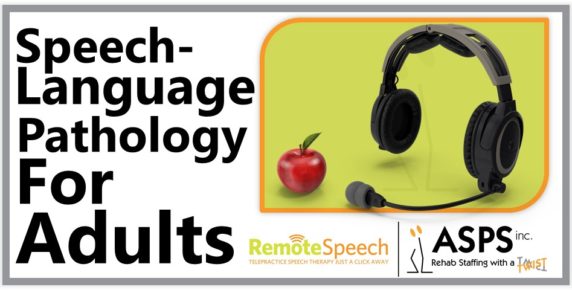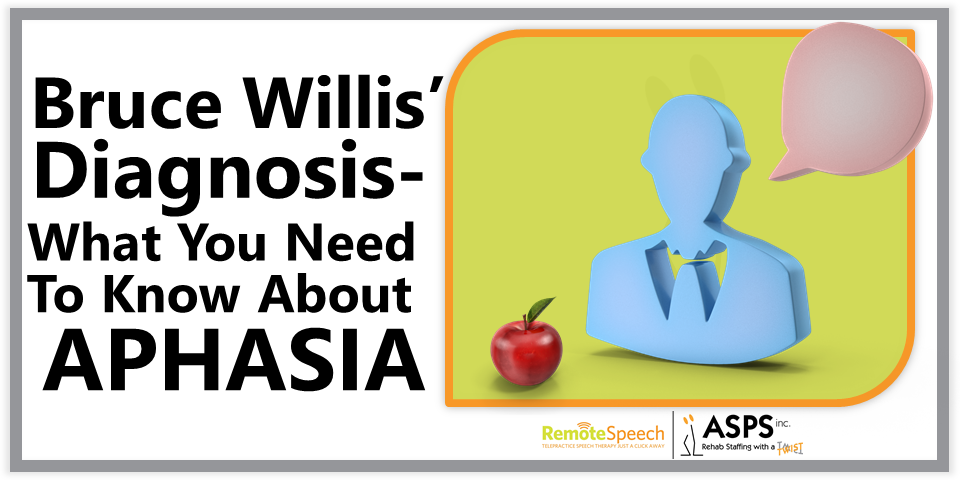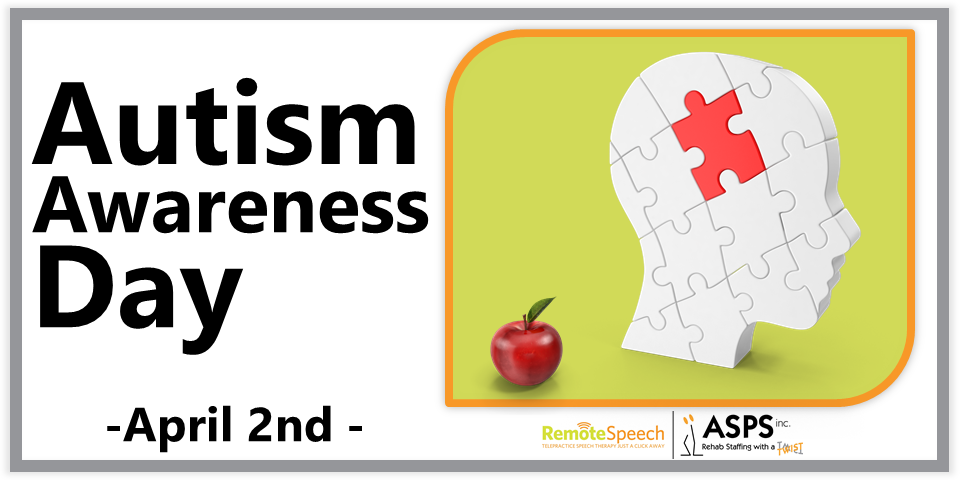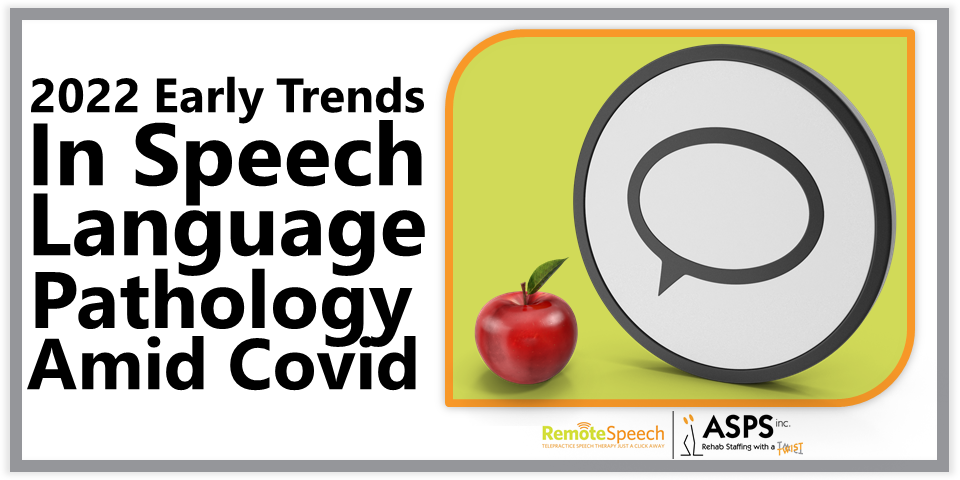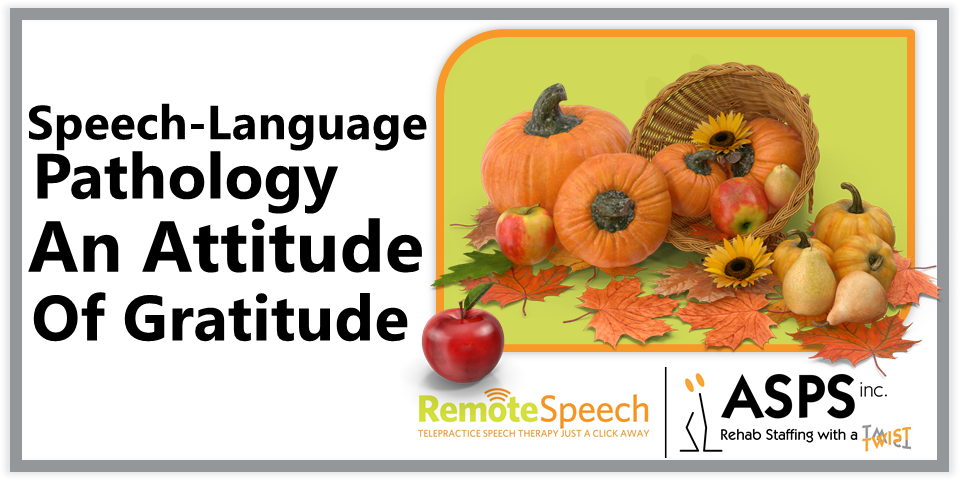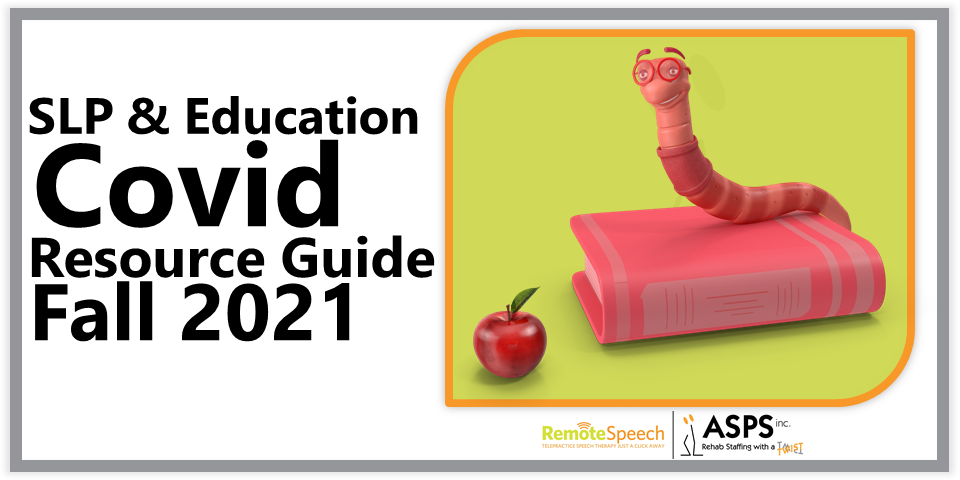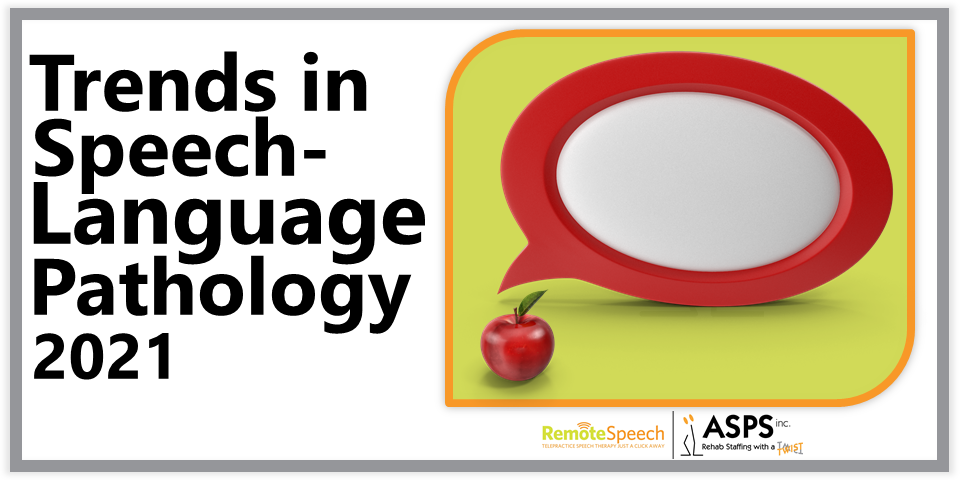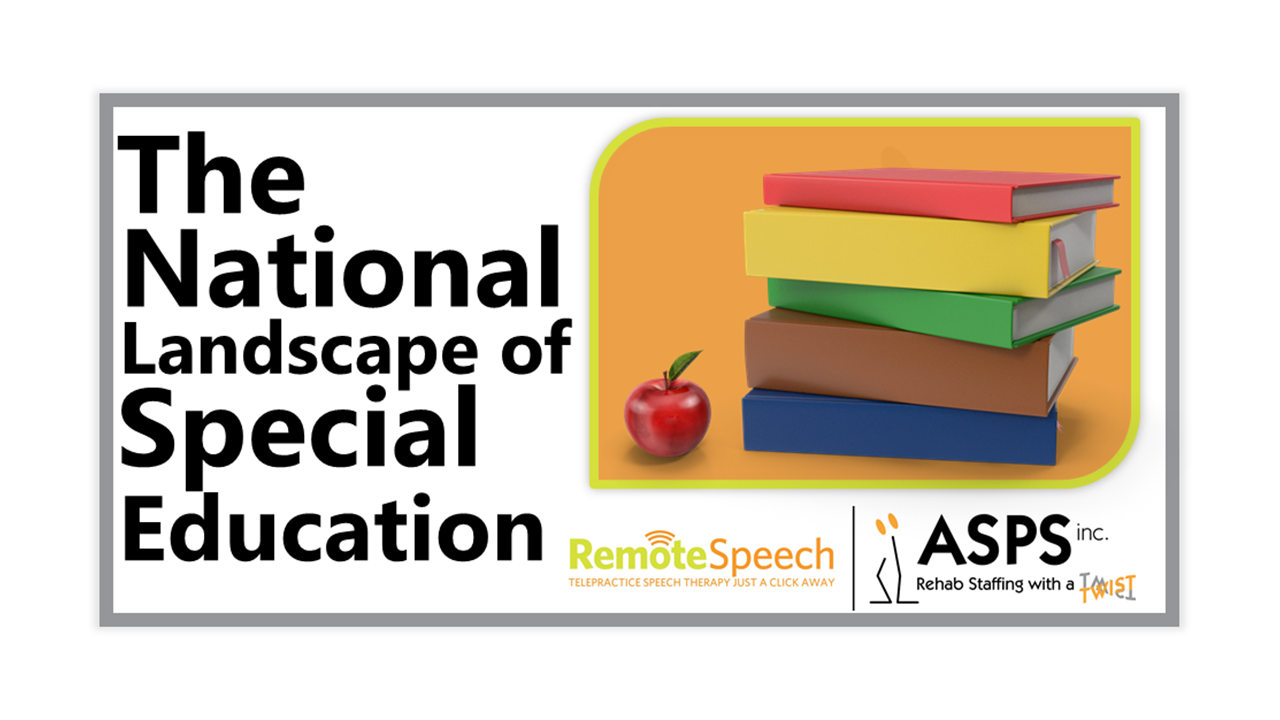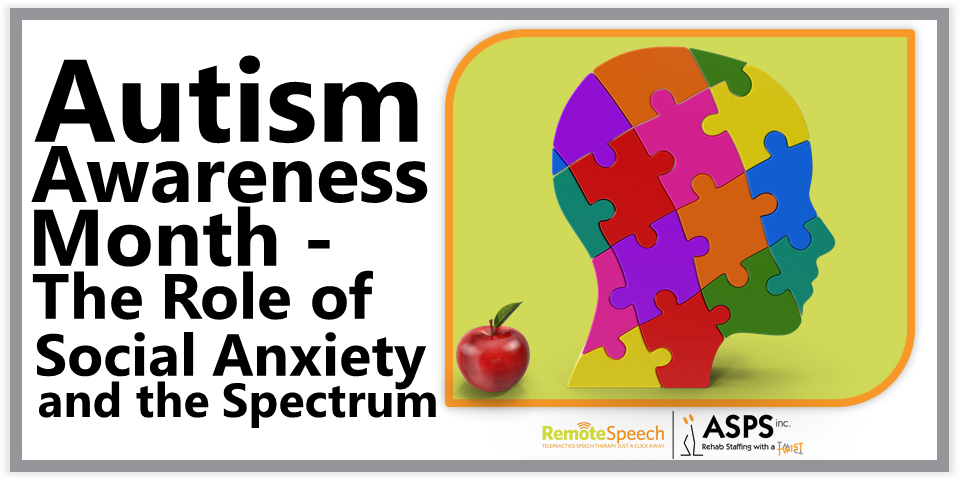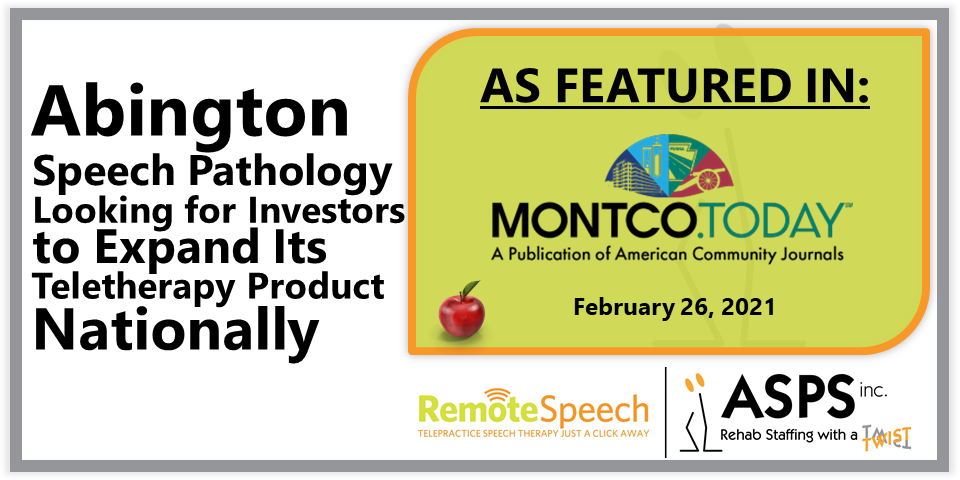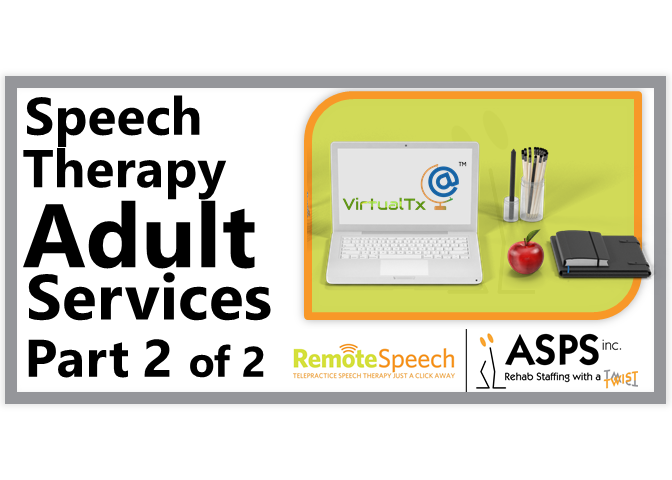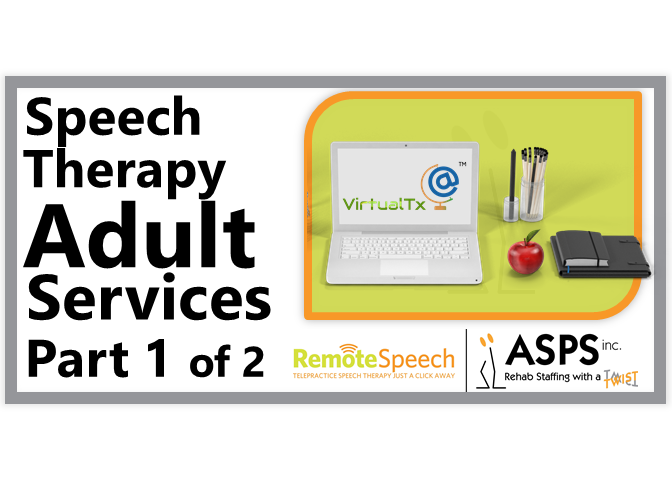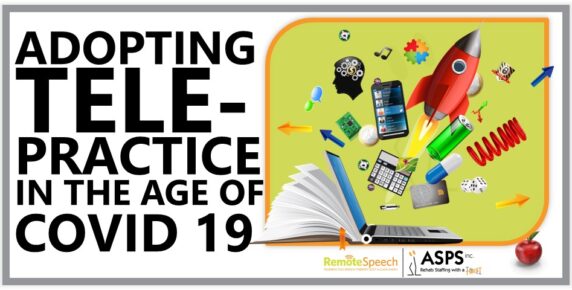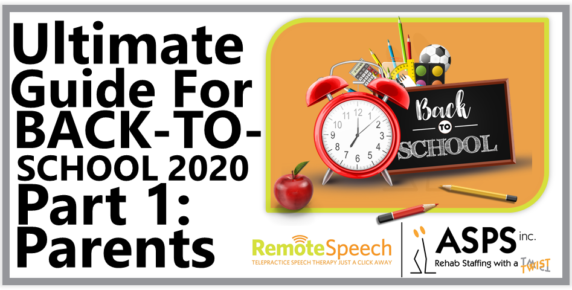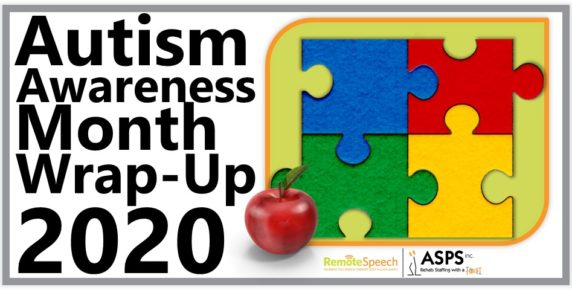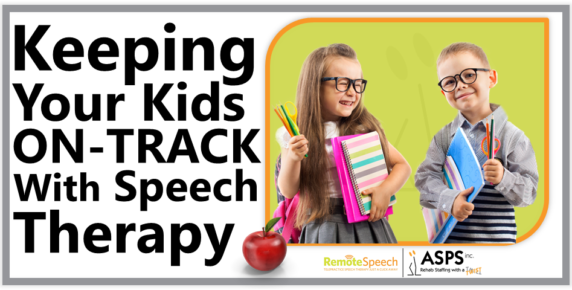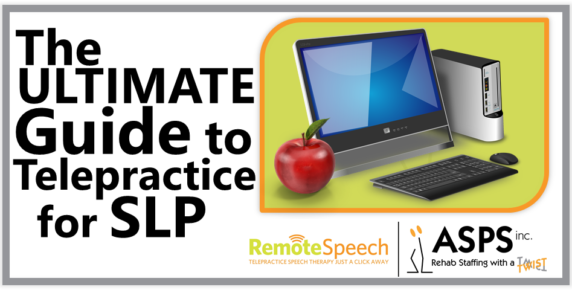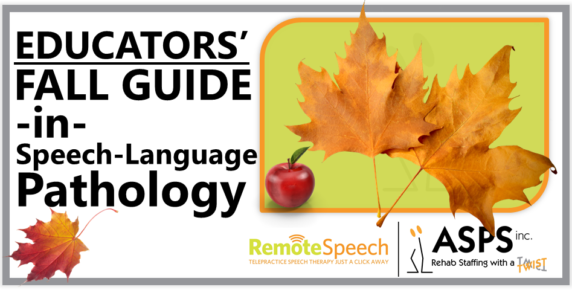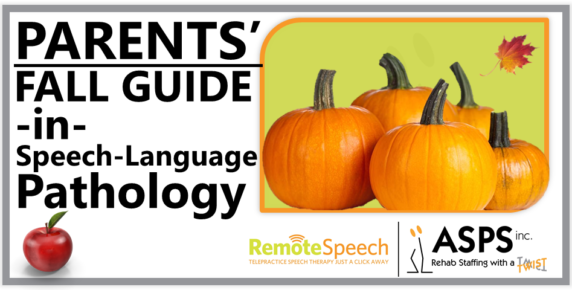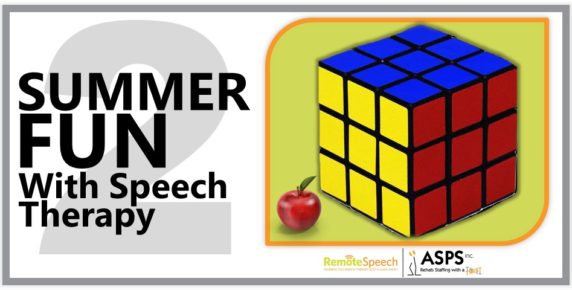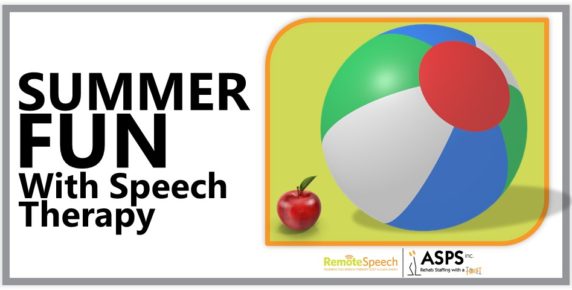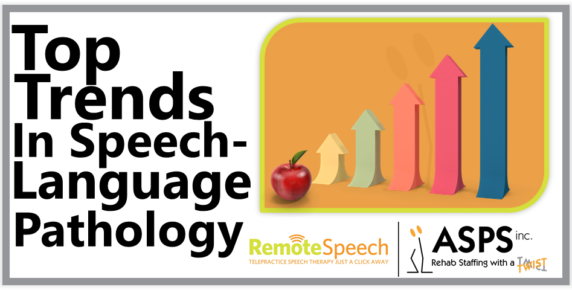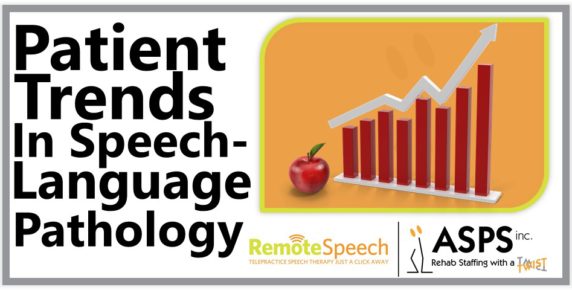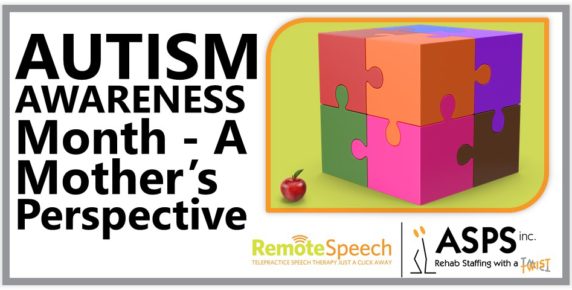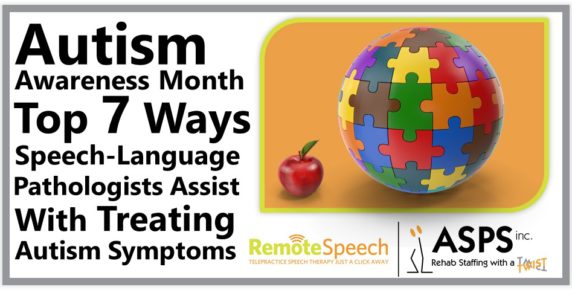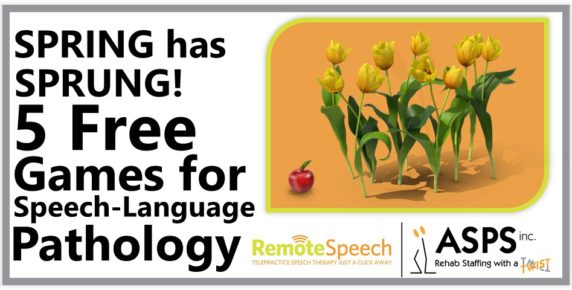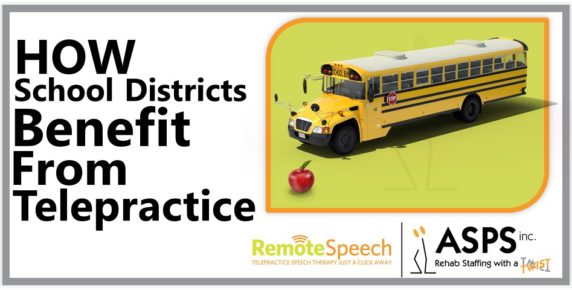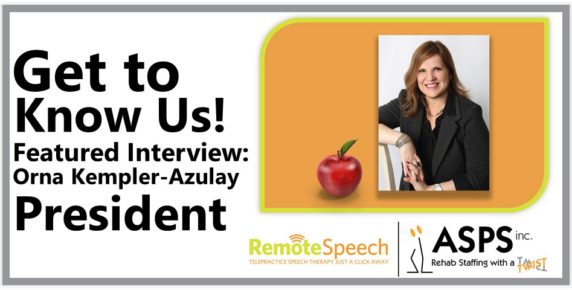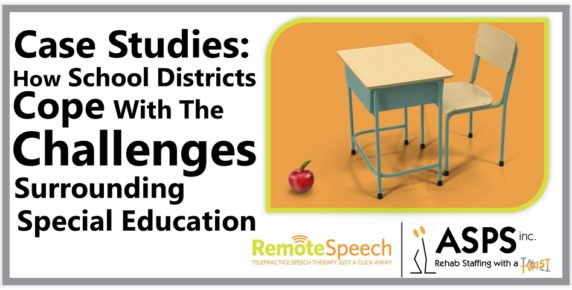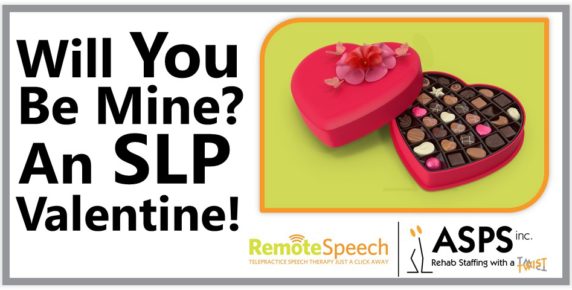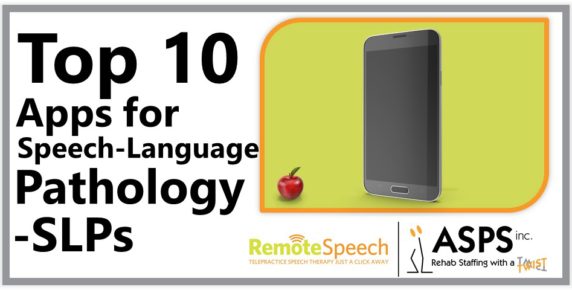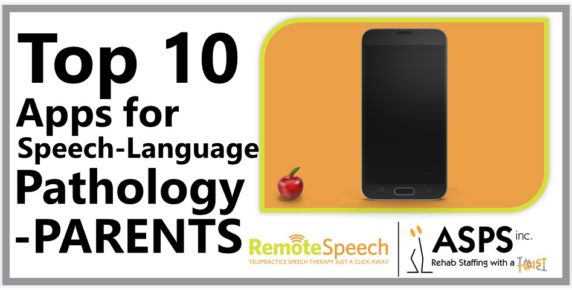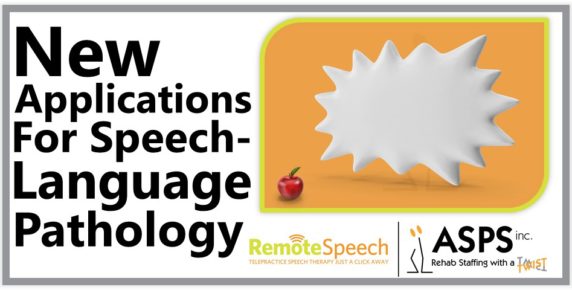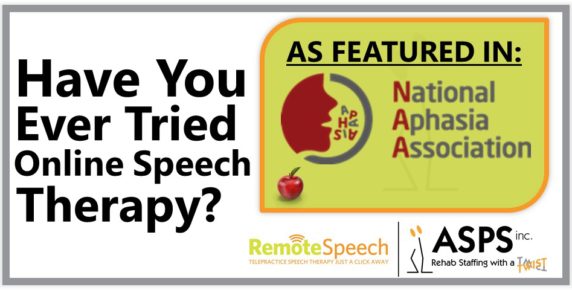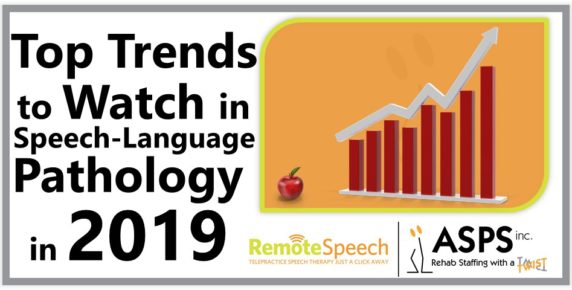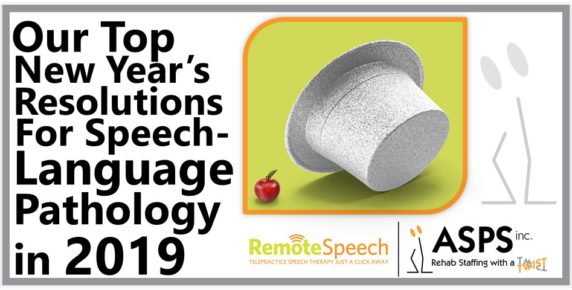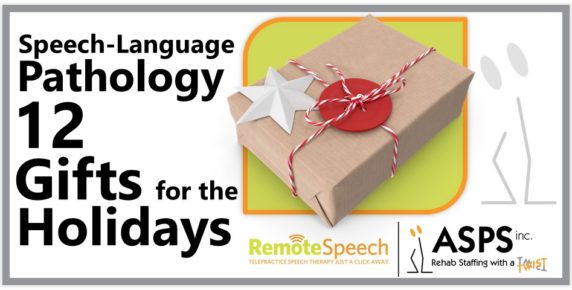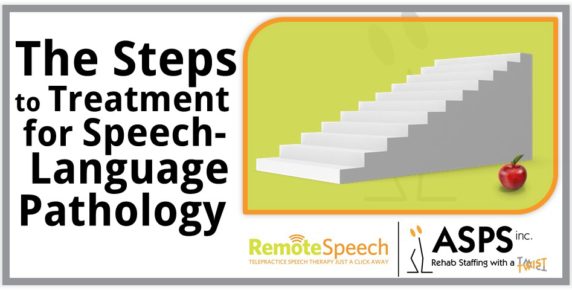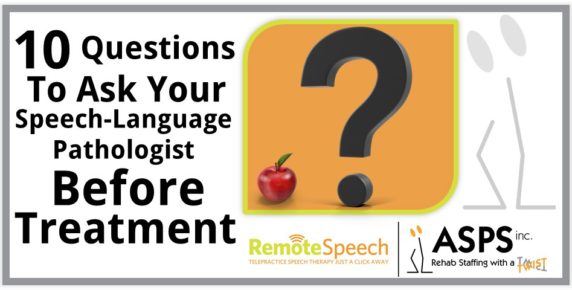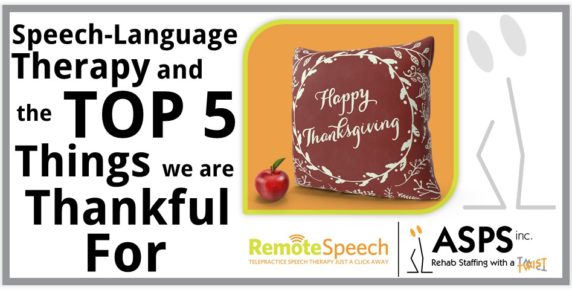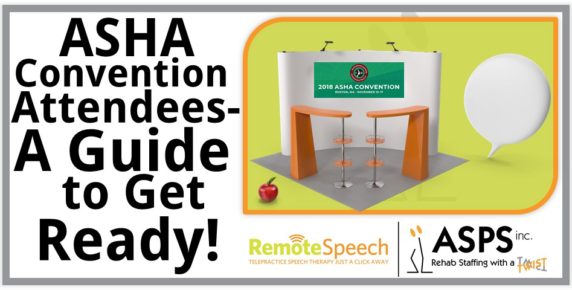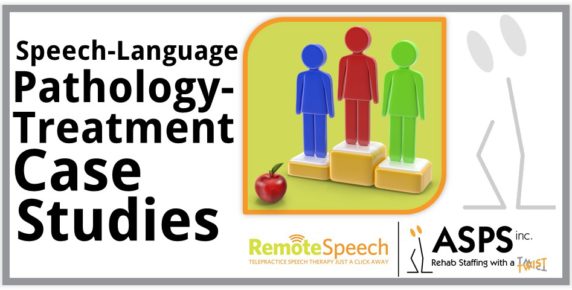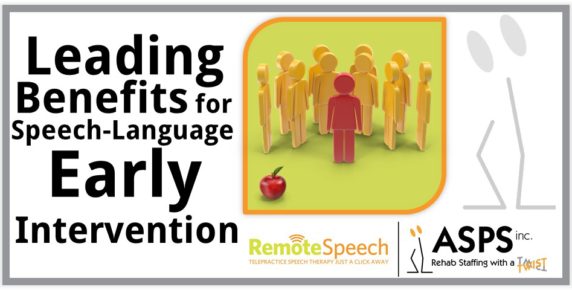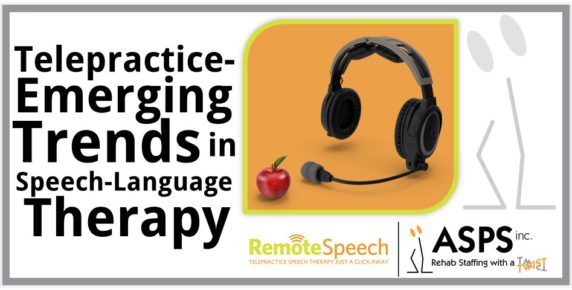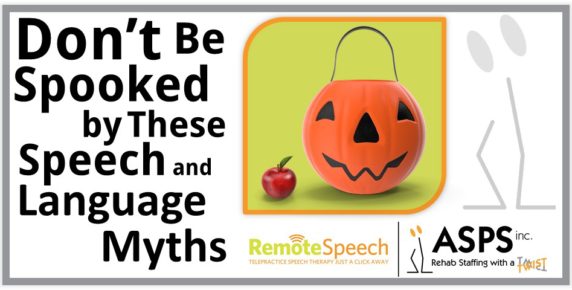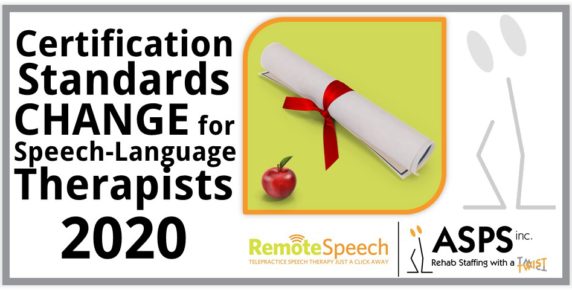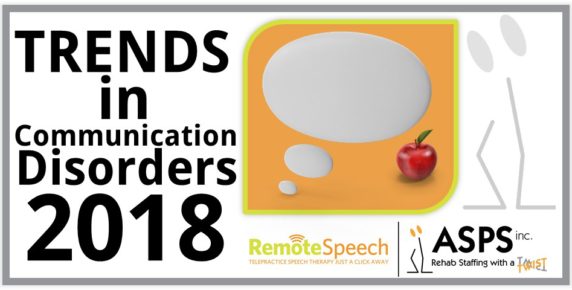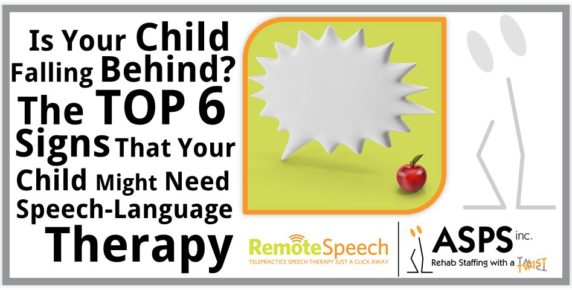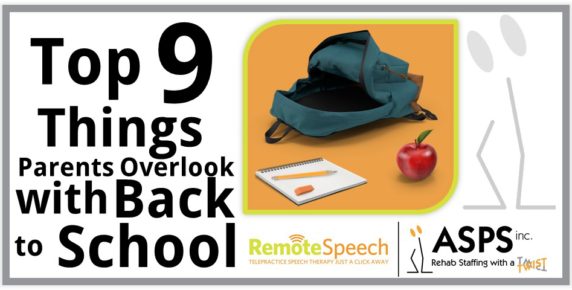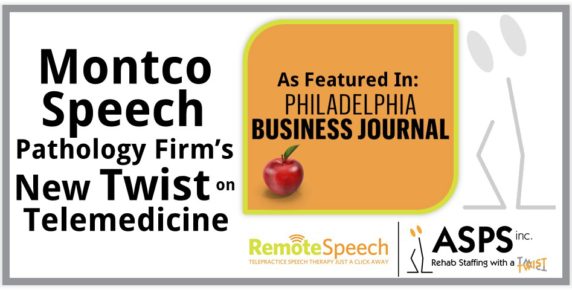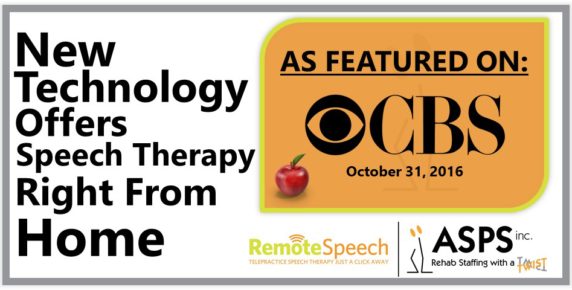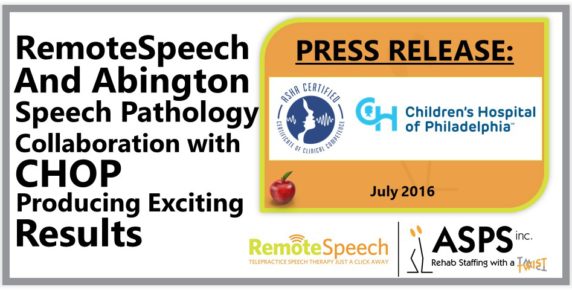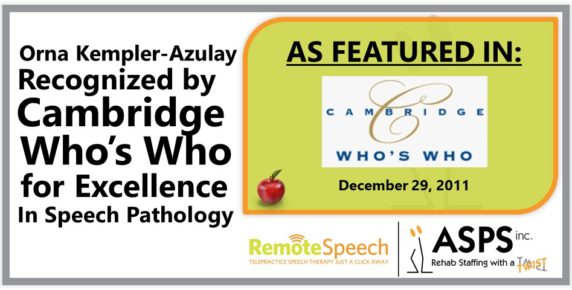Speech-language pathology is a vital resource for many adolescents in early childhood development, and as a result, it often takes center-stage as being a treatment unique to children. However, Speech-language pathology is just as vital to adults, to help them maintain, and at times, re-learn methods to effectively communicate. Speech therapy for adults encompasses a diverse set of needs, including speech, language, cognitive function as well as swallowing disorders.
In this article, we will provide an overview of the top challenges in adults that can be effectively treated with speech-language pathology. Using definitions established by the American Speech-Language Hearing Association (ASHA), we will identify the condition, site it’s symptoms, its causes and explain how speech-language pathology might treat the condition.
APRAXIA
What it is:
Apraxia is a motor speech disorder, that makes it difficult to speak.
To speak, messages must go from your brain to your mouth. These messages tell the muscles how and when to move to make sounds. When you have apraxia of speech, the messages do not get through correctly, due to brain damage. You might not be able to move your lips or tongue the right way to say sounds. Sometimes, you might not be able to speak at all.
Apraxia of speech is sometimes called acquired apraxia of speech, verbal apraxia, or dyspraxia. It is a motor speech disorder. You can also have apraxia in other parts of your body, like in your arms or legs. This is called limb apraxia.
How severe your apraxia depends on what type of brain damage you have. Apraxia can happen at the same time as other speech or language problems. You may have muscle weakness in your mouth. This is called dysarthria. You could also have trouble understanding what others say or telling others what you are thinking. This is called aphasia.
Symptoms:
If you have apraxia, you may:
- Have trouble imitating and saying sounds on your own. You may add new sounds, leave sounds out, or say sounds the wrong way.
- Be able to say something the right way one time but the wrong way the next time.
- Move your tongue and lips to get them into the right place as you try to say sounds. This is called groping.
- Speak more slowly.
- Be able to say things that you say all the time—like “Hello” or “How are you?”—without much trouble. This is called automatic speech.
- Not be able to say any sounds at all. This may happen in severe cases.
The Cause:
Damage to the parts of the brain that control how your muscles move causes apraxia of speech. Any type of brain damage can cause apraxia. This includes stroke, traumatic brain injury, dementia, brain tumors, and brain diseases that get worse over time.
Treatment for Apraxia of Speech:
The SLP can work with you to improve how you say sounds and put sounds into words. Treatment will focus on getting your muscles to move correctly. You may need to retrain your muscles to make sounds. Repeating sounds over and over and practicing correct mouth movements can help. You may need to slow down or pace your speech so that you can say the sounds you need to say. In severe cases, you may need to find other ways to answer questions or tell people what you want. These may include simple hand gestures, writing, pointing to letters or pictures, or using a computer. This is called augmentative and alternative communication.
DYSARTHRIA
What it is:
Dysarthria is a speech disorder caused by muscle weakness.
We use many muscles to talk. These include muscles in our face, lips, tongue, and throat, as well as muscles for breathing. It is harder to talk when these muscles are weak. Dysarthria happens when you have weak muscles due to brain damage. It is a motor speech disorder and can be mild or severe.
Dysarthria can happen with other speech and language problems. You might have trouble getting messages from your brain to your muscles to make them move, called apraxia. You could also have trouble understanding what others say or telling others about your thoughts, called aphasia.
Symptoms:
If you have apraxia, you may:
- Have trouble imitating and saying sounds on your own. You may add new sounds, leave sounds out, or say sounds the wrong way.
- Be able to say something the right way one time but the wrong way the next time.
- Move your tongue and lips to get them into the right place as you try to say sounds. This is called groping.
- Speak more slowly.
- Be able to say things that you say all the time—like “Hello” or “How are you?”—without much trouble. This is called automatic speech.
- Not be able to say any sounds at all. This may happen in severe cases.
The Cause:
Damage to the parts of the brain that control how your muscles move causes apraxia of speech. Any type of brain damage can cause apraxia. This includes stroke, traumatic brain injury, dementia, brain tumors, and brain diseases that get worse over time.
Treatment:
The SLP can work with you to improve how you say sounds and put sounds into words. Treatment will focus on getting your muscles to move correctly. You may need to retrain your muscles to make sounds. Repeating sounds over and over and practicing correct mouth movements can help. You may need to slow down or pace your speech so that you can say the sounds you need to say. In severe cases, you may need to find other ways to answer questions or tell people what you want. These may include simple hand gestures, writing, pointing to letters or pictures, or using a computer. This is called augmentative and alternative communication.
It is important to get help if you have apraxia of speech. Talk to your doctor about seeing an SLP, or look for an SLP in your area by visiting ProFind.
STUTTERING
What it is:
Talking to people can be hard if you stutter. You may get stuck on certain words or sounds. You may feel tense or uncomfortable. You might change words to avoid stuttering. Speech-language pathologists can help.
We all have times when we do not speak smoothly. We may add “uh” or “you know” to what we say. Or, we may say a sound or word more than once. These disfluencies are normal if they happen every once in a while. When it happens a lot, it may be stuttering.
People who stutter may have the following types of disfluencies:
- This happens when you have a hard time getting a word out. You may pause for a long time or not be able to make a sound. For example, “I want a …… cookie.”
- You may stretch a sound out for a long time, like cooooooooooookie.
- You may repeat parts of words, like co-co-co-cookie.
Stuttering can change from day-to-day. You may have times when you are fluent and times when you stutter more. Stress or excitement can lead to more stuttering.
Stuttering is more than just the blocks or repetitions in your speech. It can also make you tense your body or struggle to talk. Stuttering may get in the way of how you talk to others. You may want to hide your stuttering. So, you may avoid certain words or refuse to talk in some situations. For example, you may not want to talk on the phone if that makes you stutter more.
The Cause:
Stuttering usually starts between 2 and 6 years old. Many children go through normal periods of disfluency lasting less than 6 months. Stuttering lasting longer than this may need treatment.
- There is no one cause of stuttering. Possible causes include the following:
- Family history. Many people who stutter have a family member who also stutters.
- Brain differences. People who stutter may have small differences in the way the brain works during speech.
Here are some risk factors for stuttering:
- Gender. Boys are more likely to stutter than girls.
- Family recovery patterns. Children with family members who stopped stuttering are more likely to stop, too.
- Mood and temperament. For children who stutter, mood and temperament may lead to more stuttering. Frustration or tension can cause more disfluencies. Being excited or feeling rushed can make you stutter more. You may stutter more if other people tease you or bring attention to your speech. Your stutter may embarrass you. Or, you may feel more anxious about talking.
Triggers. Some life events may “trigger” stuttering. For example, a young child may start to stutter when he learns a lot of new words fast. He may be able to say one or two words fluently. But, he may stutter when he uses longer sentences.
Treatment:
Do you stutter? You may need to go back to see an SLP every once in a while. This helps you practice ways to manage your stuttering. The SLP will listen to you talk and test your speech. The SLP will also talk to you about how stuttering impacts your life. This will let the SLP work with you on ways to manage your stuttering.
For older children and adults, treatment focuses on managing stuttering. SLPs will also work on helping you feel less tense and stop avoiding talking. This will help you at school, work, and social occasions. The SLP will help you face speaking situations that make you fearful or anxious. Examples include speaking on the phone or ordering food at a restaurant.
You may want to look into local support groups for you or your child. You can talk with others who stutter and learn about other resources in your area.
VOICE DISORDERS
You have probably had problems with your voice at some time. Maybe you had a cold and “lost” your voice. Maybe you cheered too much for your favorite team and had a hoarse voice for a few days after. Some voice problems last for a short time while others may last longer. Learn more about different types of voice disorders.
- Vocal Fold Nodules and Polyps
- Vocal Fold Paralysis
- Paradoxical Vocal Fold Movement (PVFM)
- Spasmodic Dysphonia
ACCENT MODIFICATION
What it is:
It is important to recognize that an “accent” is NOT a speech disorder.
An individual’s accent is unique to that individual and their surroundings. In the United States, while most speak the same language, our region of origin may impact how we sound.
Treatment:
- People who speak English as a second language.
- People who want to change their regional accent.
- Professionals who want to communicate better at work.
- Actors who need to learn a new accent for a role.
_______________________________________________________________________________________________
If you believe that you or your child would benefit from a formal screening from licensed, Speech-Language Pathologist, click here to schedule a complimentary assessment by one of our licensed partners.

